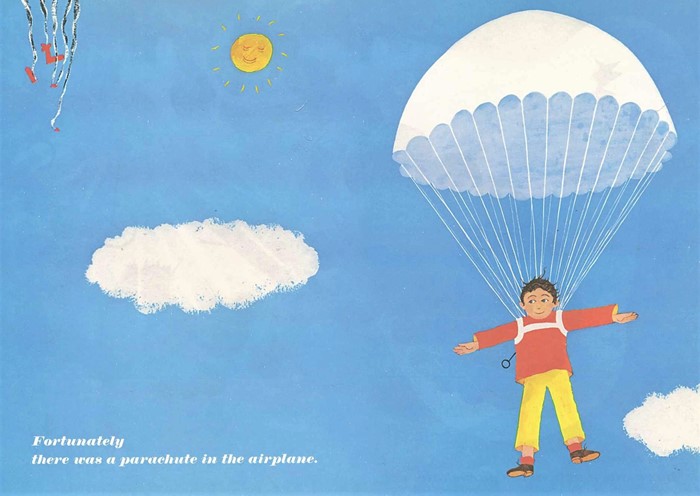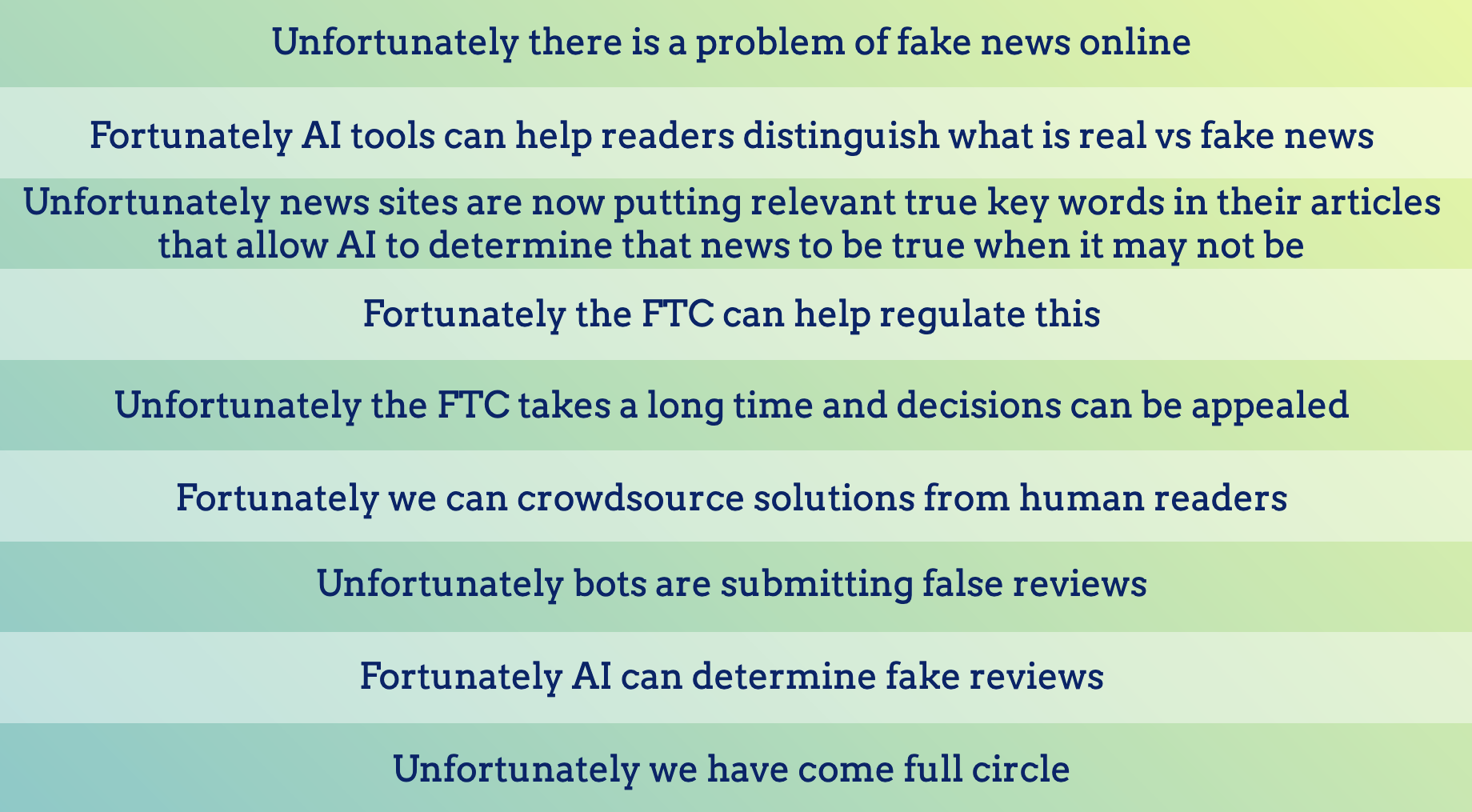Fortunately, foresight

Growing up, I had the pleasure of reading (or being read) Fortunately, the 1964 classic by Remy Charlip. This children’s book details the story of a boy who encounters a variety of twists and turns on his way to a birthday party. Every page of the story reveals a new “fortunate” or “unfortunate” event.
For example: Unfortunately, the airplane engine broke down. Fortunately, there was a parachute in the airplane. Unfortunately, there was a hole in the parachute.
Inspired by this story, I have been using the Fortunately format to facilitate discussions about the future of our world with the transformational impacts of technology. The simple back-and-forth alternation of sentences starting with “fortunately” or “unfortunately” provides a useful (and often entertaining) structure for exploring a potential change or scenario beyond just its first or second order effects.

Given the popularity of Charlip’s book and the simplicity of the format, I’m sure that others have created similar activities, but after having used this “Fortunately/Unfortunately” activity to great success in multiple foresight-oriented workshops, I was surprised to learn that none of the participants or other facilitators had experienced it before. As a result, I’ve decided to write a little explanation here as well as provide some resources for facilitating this activity below.
How to Do It
To run a “Fortunately/Unfortunately” activity, provide participants with a scenario prompt or choice of prompts based on the topic you hope to examine. These prompts should be concise and evocative. They may come from earlier scenario development as in a foresight context or may be taken from contemporary news headlines or other sources.
Some examples I used in one workshop:
- The Earth is running out of helium
- 10MM dogs & cats are lost/stolen in the US annually
- Invasive Aedes aegypti mosquitoes are spreading
- 5.6MM children under age 18 have food allergies
- IKEA is discontinuing the BLÅHAJ 🦈
Whatever the specific prompt scenario, encourage participants to write a story using the alternating sentence format to generate as many sequential fortunate or unfortunate effects or events as they can.
This activity is fairly accessible and may be most successful in smaller groups (3-5 people) with a shorter timeframe (10-25 minutes) as part of a larger workshop or discussion. I’ve used this format successfully both in online and in-person workshops.
I’ve included a Google Slides template for facilitating your own Fortunately/Unfortunately activity.
Variations
If you’re looking for ways to experiment with this activity format, here are some modification ideas to try:
- Use different categories and qualifiers to steer exploration on the same prompt (cultural, environmental, technological, etc)
- Pass the fortunately/unfortunately stories between different groups and have participants pick up where the last group left off
- Switch the “fortunately” or “unfortunately” preface around on one of the sentences and see how that changes things
- Explore “best case scenario” and “worst case scenario” versions of the same story
